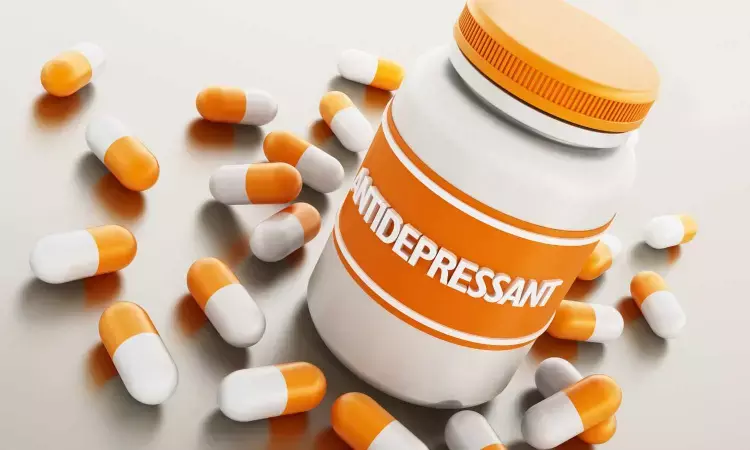- Home
- Medical news & Guidelines
- Anesthesiology
- Cardiology and CTVS
- Critical Care
- Dentistry
- Dermatology
- Diabetes and Endocrinology
- ENT
- Gastroenterology
- Medicine
- Nephrology
- Neurology
- Obstretics-Gynaecology
- Oncology
- Ophthalmology
- Orthopaedics
- Pediatrics-Neonatology
- Psychiatry
- Pulmonology
- Radiology
- Surgery
- Urology
- Laboratory Medicine
- Diet
- Nursing
- Paramedical
- Physiotherapy
- Health news
- Fact Check
- Bone Health Fact Check
- Brain Health Fact Check
- Cancer Related Fact Check
- Child Care Fact Check
- Dental and oral health fact check
- Diabetes and metabolic health fact check
- Diet and Nutrition Fact Check
- Eye and ENT Care Fact Check
- Fitness fact check
- Gut health fact check
- Heart health fact check
- Kidney health fact check
- Medical education fact check
- Men's health fact check
- Respiratory fact check
- Skin and hair care fact check
- Vaccine and Immunization fact check
- Women's health fact check
- AYUSH
- State News
- Andaman and Nicobar Islands
- Andhra Pradesh
- Arunachal Pradesh
- Assam
- Bihar
- Chandigarh
- Chattisgarh
- Dadra and Nagar Haveli
- Daman and Diu
- Delhi
- Goa
- Gujarat
- Haryana
- Himachal Pradesh
- Jammu & Kashmir
- Jharkhand
- Karnataka
- Kerala
- Ladakh
- Lakshadweep
- Madhya Pradesh
- Maharashtra
- Manipur
- Meghalaya
- Mizoram
- Nagaland
- Odisha
- Puducherry
- Punjab
- Rajasthan
- Sikkim
- Tamil Nadu
- Telangana
- Tripura
- Uttar Pradesh
- Uttrakhand
- West Bengal
- Medical Education
- Industry
Adjunctive cariprazine reduces symptoms in adult patients with major depressive disorder

A new study by Gary Sachs and team showed that adults with major depressive disorder and poor response to antidepressants alone were treated with adjunctive cariprazine at a dose of 1.5 mg/day, which showed effectiveness in lowering depressed symptoms. The findings of this study were published in The American journal of Psychiatry.
The goal of this study was to determine whether cariprazine, a partial agonist of the dopamine D3/D2 and serotonin 5-HT1A receptors that prefers dopamine D3, is effective as an adjunctive treatment for people with major depressive disorder who have not responded to at least one antidepressant monotherapy.
Adults with severe depressive illness with poor response to antidepressants alone were randomized in this double-blind, placebo-controlled research in a 1:1:1 ratio to placebo, cariprazine at 1.5 mg/day, or cariprazine at 3.0 mg/day. The Montgomery-Sberg Depression Rating Scale total score change from baseline to week six was the main result (MADRS). In the modified intent-to-treat (mITT) population, least-squares mean differences were calculated using a mixed-effects model for repeated measurements with multiple comparisons correction.
The key findings of this study were;
The mITT group comprised 751 individuals (placebo: N=249; cariprazine 1.5 mg/day: N=250; cariprazine 3.0 mg/day: N=252).
In week 6, cariprazine 1.5 mg/day substantially outperformed placebo in terms of mean decrease from baseline in MADRS total score (14.1 vs. 11.5), but not cariprazine 3.0 mg/day (13.1).
In weeks 2 and 4, there were significant differences between the cariprazine 1.5 mg/day and placebo groups.
Patients receiving cariprazine 1.5 mg/day were substantially more likely than placebo-treated individuals to meet the MADRS response criteria (44.0% vs. 34.9%); remission rates were not statistically different between groups.
Akathisia and nausea were frequent treatment-emergent side effects (5% in either cariprazine group and double the incidence of placebo).
In conclusion, Cariprazine had a safety profile that was consistent with earlier findings, and it was typically well tolerated.
Reference:
Sachs, G. S., Yeung, P. P., Rekeda, L., Khan, A., Adams, J. L., & Fava, M. (2023). Adjunctive Cariprazine for the Treatment of Patients With Major Depressive Disorder: A Randomized, Double-Blind, Placebo-Controlled Phase 3 Study. In American Journal of Psychiatry (Vol. 180, Issue 3, pp. 241–251). American Psychiatric Association Publishing. https://doi.org/10.1176/appi.ajp.20220504
Neuroscience Masters graduate
Jacinthlyn Sylvia, a Neuroscience Master's graduate from Chennai has worked extensively in deciphering the neurobiology of cognition and motor control in aging. She also has spread-out exposure to Neurosurgery from her Bachelor’s. She is currently involved in active Neuro-Oncology research. She is an upcoming neuroscientist with a fiery passion for writing. Her news cover at Medical Dialogues feature recent discoveries and updates from the healthcare and biomedical research fields. She can be reached at editorial@medicaldialogues.in
Dr Kamal Kant Kohli-MBBS, DTCD- a chest specialist with more than 30 years of practice and a flair for writing clinical articles, Dr Kamal Kant Kohli joined Medical Dialogues as a Chief Editor of Medical News. Besides writing articles, as an editor, he proofreads and verifies all the medical content published on Medical Dialogues including those coming from journals, studies,medical conferences,guidelines etc. Email: drkohli@medicaldialogues.in. Contact no. 011-43720751


